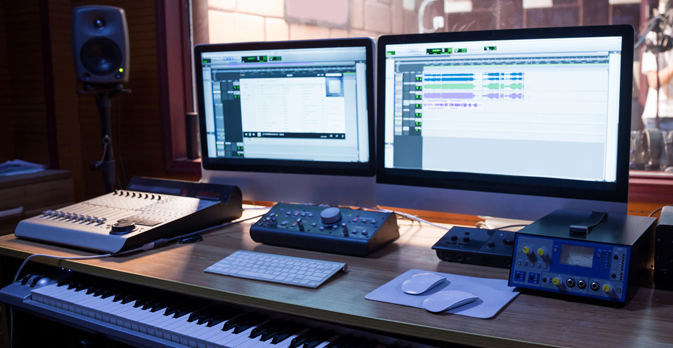Advancing technology to benefit our members
PPL’s annual collections have been growing steadily in recent years. In 2018, we collected £246.8 million for performers and recording rightsholders.

The collection and payment of these significant sums of money is supported by a sophisticated technology infrastructure that we have built over the last decade, and a drive to improve global data quality.
Recently the Financial Times (FT) spoke with ABBA’s Björn Ulvaeus, alongside business partner Niclas Molinder and PPL’s Chief Executive Peter Leathem, about how technology plays a crucial role in helping PPL pay performers and recording rightsholders.
Bjorn is a backer of music technology start-up Session (previously known as Auddly), which allows creators to add secure, transparent and correct credits to music recordings, helping to ensure that accurate music metadata enters the digital supply chain at source. This in turn means that those involved in the creation of a recording can be properly credited when it is used. PPL shares this goal as its payments are underpinned by accurate recording metadata, and so it partnered with Session in 2018 to allow PPL members to benefit from the service.
In 2019, Session launched “Creator Credits”, a forward-thinking project aimed at involving creators in metadata collection as early as possible in the music creation process. The bold initiative has been described as the ‘world’s first end-to-end music credits ecosystem’ and is being supported by a heavyweight alliance that includes Max Martin’s MXM Music, Avid Technology, DDEX (Digital Data Exchange) and Universal Music Group.
The accurate credits, added to a recording at any stage in the production process, are automatically pushed downstream to collective management organisations (CMOs) like PPL as well as managers, labels, music publishers, distributors and streaming platforms, all of whom have a role to play in maintaining good quality data and helping music people get paid
The technology acts as a “handshake” with CMOs like PPL, authenticating creators and associating vital industry identifiers (such as an International Performer Number) with their society account. It is being considered a durable solution to the challenges of capturing and recognising creators’ credits in a complex digital world.
Talking to the FT, Björn explained how Session’s technology works, using ABBA’s hit song “Fernando” and its session drummer Ola Brunkert as an example:
“Had [Session] been around, Ola would have had a smartphone with the Session app downloaded. He would have walked through the doors of the studio that morning. We would have been working with Pro-Tools where Session is integrated. We would have written the song already, so that’s in Session, the producer is there, the sound engineer is there. The only thing now is to record the musicians and after that the truth is there about “Fernando” – everything.”
This is just one initiative that we undertake to help our members get paid. PPL is also a board member of DDEX (Digital Data Exchange), helping introduce standard methods for sharing data between music companies, thereby reducing data errors and speeding up royalty payments.
Furthermore, in partnership with IFPI and WIN (the bodies representing major and independent record companies worldwide), we are building a data-sharing portal called RDx to ensure this standardised information is shared with the music licensing companies like PPL that use it.
Internally, we manage the repertoire of our 110,000+ members, helping keep it up to date and accurate so we can pay the royalties they are due.
Accurate recording metadata is crucial to the royalty income we give our members. As the FT noted, the neighbouring rights royalty industry is worth $2.7bn a year.



